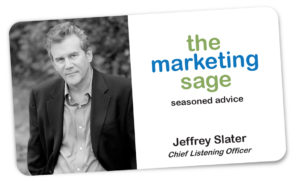Marketing strategist analyzes data to determine the best way to allocate resources to grow revenue and profits. The data might be quantitative or qualitative. Insights and information provide a clear overview of the market organization and where there might be gaps or opportunities. A marketing strategist is like a conductor who orchestrates a framework for all the tactical activities. The strategist must understand market structure, targets, unique advantages, communications, and channels.
Market Structure
In this first phase, a strategist wants to understand the organizational structure of a marketplace. Who are the main competitors, how and where do they sell, how do they position themselves versus the competition?
Think of a category like department stores and consider how Nordstrom, Kohls. TJ Maxx and Target differ. Therefore, when you begin by understanding marketplace organization, you see where opportunities may exist and how the competition is segmented.
Targets
In the next phase, you begin to assess who your product or service might serve. Are you selling to the high-end of the market or consumer’s shopping for bargains? Nordstrom and TJ Maxx are very different retailers and organize their resources differently to serve those consumers.
If you enter a Nordstrom, their highly trained staff will surprise you because of their attentiveness. In TJ Maxx, you are on your own to find the goods on the shelf. Targeting can be both demographic and psychographic. Your communications approach must reach and influence those who need to become aware of your brand using methods and techniques appropriate to the audience.
Unique Advantage
If you are a strategist working with a client in any category, you need to understand what makes their product or service unique. Does it work in a way that competition does? Is there a benefit you provide that competition overlooks? I like to think about it as the “only we” statement. Fill in the blank, “only we ______________.”
Therefore, your unique advantage becomes the basis for your storytelling to help you communicate what you do that is unlike others. To go back to the department store example, when I bought a suit at Nordstrom, the salesperson called me one week after I picked it up to make sure I was thrilled with the purchase. Kohl’s isn’t going to do that for you, but Nordstrom does.
Communications Strategy
As a marketing strategist, one of your responsibilities is to develop a communications strategy to tell the story of your product or service. How will you articulate your message? What is the voice you will use? Will you use social media as a channel for messaging, and if so, what are the objectives and success metrics?
Will you focus more on inbound marketing or outbound marketing? (Inbound is driving people to your website, for example. Outbound marketing is pushing your message out, through email marketing).
Channels
As you get deeper into strategy, you determine what channels of distribution you will sell. For example, you might sell direct to consumers from your business, through Amazon, through retailers, distributors, or wholesalers.
How and where you sell can be a unique aspect of your business, like the way Casper and other mattress companies sold directly to consumers bypassing retail stores. Hence, channel strategy is a vital part of a marketing strategist’s work because it can impact price, margins and distinctive opportunity. The healthy beverage company Dirty Lemon only sells direct to consumers through texts. You can’t buy it anywhere else or off of their website.
Composing a Brand
Consequentially, there is much more to marketing strategy than outlined in this post. Pricing decisions may be part of your differentiation. A disruptive approach to a market might come from understanding segmentation. Uber and Lyft two industries, the rental car and taxi industry, through a technology solution that was new.
In other words, think of the market strategist like the conductor of an orchestra. They lead a marketing team to help set the tone. The goal is harmony to build awareness, trust, and revenue.
Who is waving the baton in your organization?
Does your business need a marketing coach, guide, or sherpa? Are you generating enough leads? Is your marketing underperforming? I can help.
You can set up a time to chat with me about your marketing challenges using my calendar. Our initial conversation is free. You talk, I listen. Email me jeffslater@themarketingsage.com or call me. 919 720 0995. Visit my website at www.themarketingsage.com Let’s explore working together today.

Photo by Mark Williams on Unsplash




